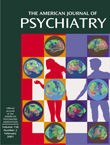Psycho-oncology
Cancer remains the second leading cause of death in the United States. According to 1998 statistics from the American Cancer Society, approximately 1.2 million people are newly diagnosed with cancer and more than 500,000 people die each year from cancer in the United States. Unlike patients with cardiovascular disease, the nation’s leading killer, cancer patients have often been shrouded in a lack of understanding of the disease process, fear of transmission, lack of an inciting “event” to which to attribute morbidity and mortality, pain, and certain death. With advances in cancer therapy, including surgical, radiation, and chemotherapy options, cancer patients began to display the presence of the disease more visibly. Cachexia, hair loss, ostomies, radiation tattoos, and mastectomies are only a few examples of treatment-related stigma of cancer that are rarely seen in other disease processes.
Scientific study into grief began in the 1940s. However, it was not until the early 1950s that literature describing psychological reactions to cancer first appeared (1). By the 1970s, quality-of-life concerns began to be addressed. Although research into the psychological issues related to malignancy began more commonly being addressed in the 1980s, the psychobiological (psychological, social, behavioral) effects that influence morbidity and mortality have largely gone unstudied until recent years. We are only beginning to understand the extent of posttraumatic stress and treatment-related cognitive deficits in cancer survivors (2, 3). Cancer-related distress frequently goes undetected or ignored, and the attitudes of, “Of course he’s depressed, he has cancer,” are still common. It is not difficult to imagine that the dissemination of concise information concerning the identification and treatment of the psychological burdens of cancer was limited until 1989 with the publication of the Handbook of Psycho-oncology , 4). This text provided the first comprehensive review of psychological issues encountered by patients with cancer.
In Psycho-oncology, a follow-up text to the Handbook, Dr. Holland acknowledges that in the late 1980s, the field of psycho-oncology was in its infancy. The new text is a compilation of evidenced-based information that acknowledges the growth of the field and firmly establishes the specialty as an independent discipline. Psycho-oncology is a masterwork that should be a standard text of general practitioners and oncologists, mental health professionals, and palliative care workers.
Psycho-oncology has greatly expanded from the original Handbook. The text covers more than 1,100 pages and has great breadth of coverage. Organized into 18 sections, the book’s 102 chapters provide in-depth, comprehensive, evidence-based reviews of a wide variety of topics that appeal to all aspects of care of the cancer patient. The text carries the reader through the entire process of terminal disease, from prevention and screening to factors associated with the dying process and bereavement. The 18 sections are edited by a wide array of specialists in psycho-oncology.
Specific sections may be broadly grouped into topics including 1) cancer screening and prevention; 2) psychological and treatment aspects of cancer-related symptoms and syndromes; 3) interventions, including psychotherapy and spiritual assessment; 4) special populations, such as children, families, and staff; and 5) ethical, research, and policy issues. Providing far-reaching perspective and experience, individual chapters are authored by a wide variety of topic experts from academic institutions and cancer centers across the United States. Chapters cover not only specific psychiatric syndromes associated with terminal disease but also specific malignancies such as breast cancer, hematopoietic dyscrasias, HIV infection, and lung cancer, providing information that is accessible to health care providers of all backgrounds. Extensive coverage is given to the management of specific symptoms such as pain, vomiting, cachexia, and fatigue.
Importantly, Psycho-oncology addresses more than the psychiatric aspects of cancer and the sequelae of terminal diseases; it also tackles issues in training and supporting health care providers working in oncology as well as ethical and research issues. The models presented in these chapters reach beyond cancer patients and are applicable to the care and study of patients with other chronic and terminal diseases.
The final paragraph of the book states that the “challenge of psycho-oncology is to produce high-quality research that is relevant to the daily delivery of cancer care and to actively work to ensure that findings from this research inform further research, clinician training, and health care delivery.” This text provides the foundation from which health care workers and researchers can base a substantial understanding of the patient with cancer. Psycho-oncology goes unparalleled and will serve the reader well for years to come.
1. Shands HC, Finesinger JE, Cobb S, Abrams RD: Psychological mechanisms in patients with cancer. Cancer 1951; 4:1159–1170Google Scholar
2. Smith MY, Redd WH, Peyser C, Vogl D: Post-traumatic stress disorder in cancer: a review. Psychooncology 1999; 8:521–537Crossref, Medline, Google Scholar
3. Meyers CA: Neurocognitive dysfunction in cancer patients. Oncology 2000; 14:75–79Medline, Google Scholar
4. Holland JC, Rowland JH (eds): Handbook of Psycho-oncology: Psychological Care of the Patient With Cancer. New York, Oxford University Press, 1989Google Scholar



